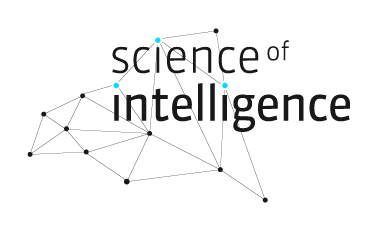Cluster of Excellence Science of Intelligence
Reference number: SCIoI-C5-50B
starting at 01/06/23; limited for 3 years; applications deadline 24/11/22; salary grade E 13 TV-L
The Humboldt-Universität zu Berlin (Faculty of Mathematics and Natural Sciences -
Department of Computer Science,) invites applications for a PhD position for the Cluster of Excellence “Science of Intelligence”, project: Adaptivity in learner - teacher interaction
What are the principles of intelligence, shared by all forms of intelligence, no matter whether artificial or biological, whether robot, computer program, human, or animal? And how can we apply these principles to create intelligent technology?
Answering these questions - in an ethically responsible way - is the central scientific objective of the Cluster of Excellence Science of Intelligence (https://www.scioi.de), where researchers from a large number of analytic and synthetic disciplines - artificial intelligence, machine learning, control, robotics, computer vision, behavioural biology, psychology, educational science, neuroscience, and philosophy - join forces to create a multi-disciplinary research program across universities and research institutes in Berlin. Interdisciplinary research projects have been defined (https://www.scienceofintelligence.de/research/projects), which combine analytic and synthetic research and which address key aspects of individual, social, and collective intelligence.
Job description/doctoral project: Adaptive learning strategies in robots for social
interactions
In social interactions between human learners and teachers, it is of central importance that the teacher develops a model of the learner that refers to knowledge, motivation, and emotion of the learner - such a model allows to match tasks and the provision of learning support to the learner. In turn, the learner needs to develop a model of the teacher that informs about the knowledge, teaching style and individual differences such as trustworthiness or patience of the teacher. The development of such a mutual
understanding is a core component of successful social interactions in learning contexts.
However, it is empirically not well researched in instructional psychology how learners and teachers build such mutual models of each other–and thus, how tasks, materials, learning content and social interactions can be adapted to the characteristics of the learner or the teacher. In robotics, on the other hand, the characteristics of synthetic learners and teachers can be changed, therefore the question is more, how the characteristics of learners and teachers can optimally be adapted to the requirements of the task, the current context, and specific characteristics of their interaction partners.
In this project, we aim to investigate whether and how principles of adaptive social
interaction among humans can be transferred to social interactions between humans and
artificial agents (HRI), and between artificial agents (RRI).
The doctoral project focuses on adaptive learning strategies in Human-Robot Interaction
and in Robot-Robot Interaction. One aim is to develop adaptive learning strategies in
robots that can guide the learning process depending on the context, task difficulty, current knowledge of the robot and specific characteristics of the teacher. We will investigate learning and exploration strategies such as intrinsic motivation systems and evaluate them based on learning success and insights from learning theories in humans.
Responsibilities include scientific research within the project and academic services in the Cluster. The postdoc positions requires participation in research colloquia, lecture series and workshops, as well as an active engagement in the Cluster's research activities and close collaboration with a second theoretical postdoc hired in the same project.
Requirements:
- diploma or master’s degree in computer science, robotics, machine
learning or computational neuroscience
- in-depth programming skills in Python
- very good command of English (spoken and written)
- strong interest in HRI, machine learning and a keen interest in understanding
intelligence,
- the strong communicative skills required for interdisciplinary research,
- a conscientious work approach, flexibility, good time management, and ability to
work in a team
Application procedure (closing date for applications 24.11.2022):
Candidates should upload their application preferably via the portal
http://jobs.scienceofintelligence.de in order to receive full consideration.
For more information about the project please contact Prof. Verena Hafner (hafner@informatik.hu-berlin.de).
Applications (in one combined PDF) should include: a max. 1 page cover letter, a max. 2 page motivation letter, curriculum vitae, list of publications and one selected manuscript, copies of degree certificates (MSc), two names of qualified persons who are willing to provide references, and any documents candidates feel may help us assess their competence.
A written application with the reference number SCIoI-C5-50B and the above-mentioned documents could be sent to Technische Universität Berlin - Der Präsident - Cluster SCIoI, Sekr. SCIoI, Marchstr. 23, 10587 Berlin.
The Humboldt-Universität zu Berlin is seeking to increase the proportion of women in research and teaching, and specifically encourages qualified female scholars to apply. Severely disabled applicants with equivalent qualifications will be given preferential consideration. People with an immigration background are specifically encouraged to apply. Since we will not return your documents, please submit copies in the application only.
Please click here for the legally binding German version.
